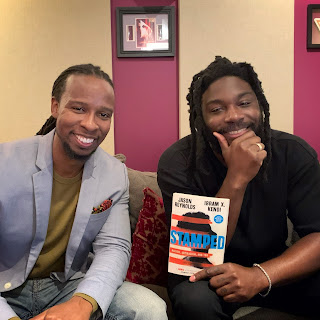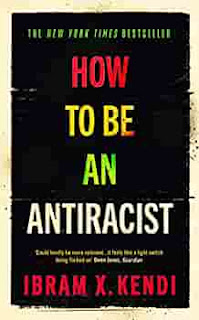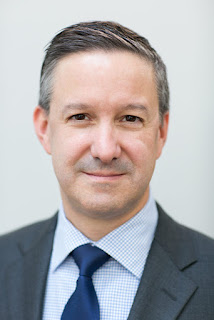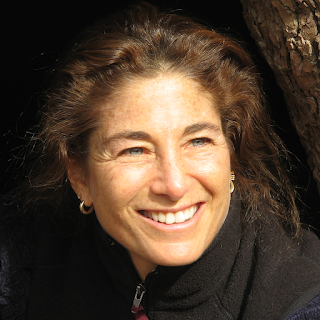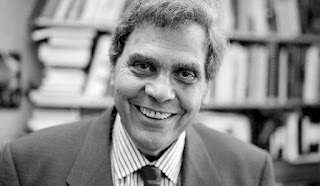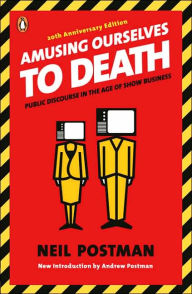Welcome to Joe Stevens' blog! Enjoy this educator/journalist's take on modern living and pop culture from a Gen X perspective.
Saturday, March 18, 2023
Stamped for all readers
Friday, March 17, 2023
Are you an antiracist?
Thursday, March 16, 2023
Hey smart kids, create something
Yang focuses on the sad, dead-end path of our nation's elite students. They'll likely either go to law school or work in finance or enlist in Teach For America. Before they know it, they'll undoubtedly feel as if their life isn't their own and they're just working, working, working.
Yang's argument is that these elite students should stop the cycle of hard work, elite college, hard work, elite job, hard work, burnout.
Instead, these elite individuals should be entrepreneurs. They should start companies, fail at them and keep trying. To Yang, a potential job candidate who has a failed business is much more attractive than someone just grinding it out in finance.
As I've realized who actually holds the wealth in America, I couldn't agree more with Yang. If wealth is your real plan and you're young enough, it's not bad advice to quit your job, or quit school, and start a company. But that assumes you're hungry, self-motivated, elite and "smart." (Most kids really aren't that. They're just digital consumers nowadays.)
I say go ahead and get a degree — maybe even an elite agree. But the moment you find yourself taking out student loans for law school or working for a bank or investment firm, understand that is a mistake. Create something. Create something America needs.
Schools, and formal education, have a glorious disconnect from work. Many high-achieving students show up to the workplace without a clue about what to do and how to problem solve. I remember connecting a lot to a question Yang posed at one point: How do you teach problem solving on the fly?
I do not believe starting a business or being an entrepreneur is a panacea for finding meaning in one's life, or solving a lot of serious issues our nation — and world — face. However, with so many elite students pursuing capitalistic nothing-burger positions, I believe going Yang's route is much better. At least you're trying to contribute something that potentially could improve our country, or world.My dad, the XMan, was an attorney, and he learned quickly that he would be much better off creating his own law firm as opposed to busting his tail for someone else. I love that he did that. A tough lesson a lot will endure will be the realization that they are busting their tails, and giving their lives, for a corporate entity that couldn't care less about them.
As capitalists, we need to create value as opposed to just renting space and shuffling around assets. I hope there is a newfound stress for products built in America, and we actually build things instead of being so reliant on imports. We need new, fresh companies, not lawyers and investment bankers.
If our kids actually are going to improve this country, Yang may very well be right. Positive change might only happen through new companies where innovation isn't a buzz word, but actionable.
Wednesday, March 15, 2023
College admissions: Arbitrary and unfair
Tuesday, March 14, 2023
The Inner Life of Teachers
Monday, March 13, 2023
Positive thoughts, words and deeds
"Did you hear what she did now?"
"Jim is so unreliable. What did you expect?"
"Only three days to Friday."
Oh my gosh, identifying negativity in the workplace — and especially in our schools — is so easy. It often feels like a perpetual drumbeat.
"You wrote your name in the wrong spot. Minus two points!"
After identifying how negative and punitive our schools are, then what? Well, that question led me to Positivity: Discover the Upward Spiral That Will Change Your Life (2009) by Barbara Frederickson. The book helped me with setting specific positive intentions and following through with actions that match.
I used to think positivity was a mere mindset. While that is true to an extent, a positive, healthy lifestyle takes positive actions and intention. It makes me think of the Zoroastrian mantra "good thoughts, good words, good deeds."
To me, positivity involves thoughts, words and deeds. It's hard to have one without the others.
One huge point from Positivity is how we humans are wired for survival, and its modern-day offshoot is negativity. Back in primitive times, our brains used to shoot out cortisol when we were threatened by a tiger in the jungle or faced a tribe attacking us. In modern living, our brains may release cortisol when we're slighted or cut off in traffic or when something we don't like happens that is far from life-threatening.
We must recognize this unnecessary release of cortisol and strive for positivity. But how?
Frederickson explains that we can shoot for three positive thoughts to one negative, meaning that eliminating negativity isn't possible but we don't have to remain stuck in it. She also has identified 10 positive emotions worth striving for, and those are joy, gratitude, serenity, hope, inspiration, love, amusement, awe, interest and pride.
I'm wondering if I need more of an action plan toward consistently obtaining Frederickson's 10 positive emotions. Plus, 10 emotions seem like a lot.Saturday, March 11, 2023
I give you Permission to Feel
A gaping hole keeps expanding in our education system with how students, and adults, understand and deal with their emotions. So we continually turn out emotionally stunted, academically compliant students on the path to lives that could be much more enriching and emotionally meaningful.
In a professional development one day, I saw the Mood Meter (below) and, soon after, showed it to my students. They responded to it and seemed to learn and label their emotions. I would ask them to do a self-assessment for how their energy level is on a scale of 1 to 10 and how pleasant they feel on a scale 1 to 10.
I discovered that Marc Brackett created the Mood Meter and wrote Permission to Feel: The Power of Emotional Intelligence to Achieve Well-Being and Success (2019) to explore emotions and promote emotional development and education with teachers.
I am 100 percent sold on Brackett's message, and I agree with him that training teachers in SEL (social emotional learning) is more difficult than it should be. Many administrators and teachers have so many responsibilities that promoting SEL often sounds like another added responsibility to them. However, I feel it's the opposite. SEL sets up the teacher, and student, for authentic connection that deepens the classroom experience for both.Permission to Feel focuses a lot on RULER, which is a mnemonic for recognizing, understanding, labeling, expressing and regulating emotion. I love this! The Mood Meter comes into play with labeling, and I found the chapter on regulating emotion, in particular, was helpful. RULER is my favorite guide I've run across with how to deal with emotions.
Brackett offers five strategies for emotional regulation, and my favorite is cognitive reframing — shifting our perception. Mindful breathing, forward looking, attention shifting and taking a moment, a Meta-Moment is what he calls it, all are helpful strategies.I think it can be hard for teachers and educators to separate fads that will come and go and strategies that will have staying power. SEL is no fad. Hopefully, our classrooms have been engaging in SEL before we called it that.
Honestly, the labels might be new, but I don't think the approach is if you ever encountered a totally with-it, connected teacher (or maybe that's a unicorn for you). The term "emotional intelligence" was not coined until 1990, so it makes sense that some of our terms are new nowadays.
Permission to Feel affected me so strongly that it may be the No. 1 teaching book I'd recommend to all teachers. Some of my other favorites are bit more intellectual, but to me, this one is for everyone. I took away so much from it that I feel obliged to give a few more highlights.
I had never heard of emotional granularity before this book. That is putting feelings into words with a high degree of complexity. Often times, even adults are stuck in "happy, mad, sad" to explain their complicated feelings. Our feelings go beyond those rudimentary words. Right?
Attribution bias also stuck with me. That is assuming others feel how you do. Guess what? They don't. If someone says, "I hate this place. Everyone is so depressed," that likely means oh, OK, that person is depressed.
In a 2014 Gallup poll Brackett cites, teachers and nurses tied with the most stressful jobs on a daily basis, so that group truly must know how to deal with that stress and their emotions. They need to be emotion scientists as opposed to emotion judges.
Friday, March 10, 2023
Community replaces control
Bell hooks taught me a lot of helpful, necessary material. But because her focus often is the importance of the emotional and spiritual sides of educators and students, I feel so warm when I think of her.
I've read multiple bell hooks books and put Teaching Community: A Pedagogy of Hope (2003) at the top of the list. In classrooms, teachers must stop perpetuating education's cold system of dominance and control. Rather, they must build communities where the teacher and student work in partnership.
While this idea may seem pretty darn basic, I must say that it sadly is over the head of many teachers who may not reflect deeply enough. Others embrace dominance and control and call it "classroom management." They are like, "I was dominated and controlled when I was a kid, and that's what they'll need in college."
Lol! ... Once we as teachers understand that dominance, control and mere rule following is not at all education, then we can maybe do something worthwhile for both the teacher and student.
However, I'm only talking about the thesis of Teaching Community, and hooks gets into many crucial aspects of teaching that need to be addressed more. She does that through essays in each chapter. One chapter I especially respond to is spirituality in public school classrooms.
Teachers typically are trained to not talk spirituality, or religion, in the classroom, and this is a disservice to themselves, students and society. Rather, teachers need to bring secular sacredness into their classrooms, and by sacredness, bell hooks means awareness and wholeness.
By denying the spiritual sides of students, it promotes disconnectedness from one's self and others. So a potential reason why our schools are so disconnected could step from this spiritual denial.
Other huge topics that I respond to in Teaching Community are hooks' commentary on race and emotion. Hooks writes that teachers are often the most reluctant group to acknowledge the extent in which "white supremacist thinking informs every aspect of our culture including the way we learn, the content of what we learn, and the manner in which we are taught."
So true. Our history books and our curriculum come from such an obvious white perspective that districts and educators truly must understand and accept this for any hope of progress. Unfortunately, hooks' basic point often remains unacknowledged, and so schools are stuck in the past.
With emotion, hooks underscores that a teaching space must open itself up for emotional growth, and if it doesn't do that, ultimately it will remain stuck in dominance/control mode. Of course, there is much more intricacy to her points than my overview here, but at least I'm pointing out a few basic points.
Hooks passed away in December 2021, and after that, some of her work saw a resurgence. In fact, All About Love (1999) has been in The New York Times top 10 of nonfiction books for close to a year.
I was happy to have found her work while she was still with us. She absolutely, positively deserves the attention and accolades she receives.
Thursday, March 9, 2023
Booze: Outdated Poison
The answer: 54 percent.
What?!? I thought it would be way higher than that. When I was in college, beer seemed to be the fuel of the students. Apparently, it isn't that way any more. and my preconceived notions of drinking are off.
Not Drinking Tonight: A Guide to Creating a Sober Life You Love (2022) by Amanda E. White is a book I saw on the new shelf at my El Dorado Park Library, and it called to me. Although it is geared more toward a female audience, I couldn't put it down, and it's helped me cut down my drinking and understand huge facts new to me.
Most of the book isn't about alcohol. Rather, it's about exploring the underlining causes that bring people to drink. Early in the book, it points out an outdated view many people have on alcoholism. A lot have an "all or nothing" stance. Either you're an alcoholic or not, but in reality, it's not so tidy.
Many have alcohol disorders. People drink when they're stressed, in social situations, as a routine, "to unwind," etc. They might not belong in Alcoholics Anonymous, but they have a disorder. They would be better of if they drank less or didn't drink at all.
Personally, I don't want to drink that much. I'm getting older, and it just doesn't feel that great when I drink. I've cut down.
So much information in Not Drinking Tonight resonated with me that I wish I had run across it earlier in life. White explains the idea of "reparenting," and it blew my mind. I was like, "What? Huh? You mean you can do that? With yourself?"
Mind blown.
I liked all sections of the book, but especially responded to Part II: Reparenting. The four chapters in that section are about mindfulness, emotions, self-care and boundaries.
Wednesday, March 8, 2023
Compassion and acceptance — radical actions
I wrote down that quote from Tara Brach's Radical Compassion and try to live it. Culturally, I feel we often divide ourselves, or sort ourselves, and I think that loses the wondrous essence of whom we are as human beings.
I respond to both Brach's Radical Compassion (2019) and Radical Acceptance (2003), and after reading those, I've come to love her podcast, which features loving lectures and mediations. I recommend both books, but will officially recommend Radical Compassion: Learning to Love Yourself and Your World with the Practice of RAIN because it's newer.
Nowadays, I'm hardly reading any personal growth, AKA self-help books, but not too long ago, I devoured them. Growing up as a "pleaser," I accidentally indoctrinated myself into culturally typical ways of thinking and living that weren't that healthy or caring. I tried to put everybody before myself, which I thought was Christlike. But what about myself? How genuine could my compassion and acceptance be for others, if I didn't have that for myself?
Brach's books helped me grow and let go of a lot. They helped me reset and focus on what is actually important and healthy in life. I would say my demographic of "fallen away Gen X Catholic" carries a lot of baggage. I feel that me, officially moving away from Catholicism, was the right move, but then I walked around with a spiritual hole for most of my life.
Brach is an engaged Buddhist. That means she applies Buddhist teachings to social, political, environmental and economic suffering and injustice. She was raised as a Christian Unitarian and is a clinical psychologist PhD, and for me, she speaks my language of how I see and relate to spirituality.
It's not only Radical Compassion and Radical Acceptance that work for me, but also Brach's wisdom and podcasts. I responded once to when she was talking about slowing down our lives. "When you walk half as fast, you see double," she said. It's so true. I have no time to rush.Tuesday, March 7, 2023
Operation: Generational wealth
That Chinese proverb shined off a page in Make Your Kids Millionaires, and I couldn't agree more. With personal finance, it's never too late to get on the right track and plant investments.
With parenting, it's also never too late — or too early — to give kids a financial education, which is glaringly absent in schools.
If Make Your Kids Millionaires: The Step-by-Step Guide to Lead Children to Financial Freedom (2022) by Loral Langemeier and Kyle Boeckman weren't on the "new nonfiction" shelf at my El Dorado Park Library in Long Beach, I would have never read it. The fact that it made it into the top 10 parenting books I recommend is a mini-miracle because I rarely read books right off the shelf. Maybe I need to do that more; I don't know what I don't know.
Make Your Kids Millionaires is a mixture of financial advice for parents and a roadmap of age-appropriate money lessons and facts to teach our kids. I read this a few months ago with my daughters already teenagers and wish I read it when they were younger. However, I found the financial advice for parents much more useful than the teaching plan of finance.
One major thing I completely didn't realize was part of Chapter 4, which has the Chinese proverb about planting trees. I was supposed to open a Roth IRA for my daughters at birth. Ugh. Well, better late than never!
Some of the lessons and timeframes on what to teach kids makes total sense, such as when to get them debit cards. Honestly, I am not exactly an entrepreneur, but am open-minded to it. Similar to the Roth IRA, I can't go back in time and open an LLC to pass off to my kids. But I should've done that too!Just like golfers think they're better than they actually are, Americans think they're richer than they are. They have misconceptions of wealth, like the car they drive or neighborhood they live or their occupation is somehow wealth. They fail to see it's about the numbers and achieving actual financial goals as opposed to some old-timey belief about status.
The good news is that we can do a gap analysis on our knowledge of finance and fill in the holes and make up for our mistakes. With our kids, so many important lessons come through discussions of money. Those include personal discipline, the importance of planning and saving, setting realistic goals and much more.
It's also important know how fluid the financial world is. Roth IRAs did not come into existence until 1997, and so if you missed the boat on opening one for your kids, just do it now and don't beat up yourself.
I's a pretty slick parenting move to give your kids non-taxable $1 million (or more) when they turn 59 1/2. And it's a pretty good lesson on how compounding interest and investments work. It's never too early to teach our kids finance. And it's never too late to understand that it's not about what you make, but what you keep.
Monday, March 6, 2023
Gen Z's sleepless suffering
So what can we parents do for our sleep-needy kids? Well, modeling helps. Generation Sleepless made me realize that parents often model poor sleep patterns and engage in ineffective communication with their kids. Nag, nag, nag. Totally ineffective.
The authors made me realize that a huge step with hoping my kids get better sleep was to have open, listen-focused conversations. Ultimately, I can't will them to proper sleep, but at least we can identify and label the problem.
So much occurs during sleep necessary for healthy living that I've learned not to take good sleep for granted. Thank God, I typically have restful, healthy sleep — especially when I have zero drops of alcohol in me. Caffeine messes with sleep, too, and I have a time cutoff for that.
Unfortunately, our kids put their schoolwork above sleep or think they're unwinding with their abundance of screen time. They're not. I guess Big Tech succeeded with getting our kids' attention, but we need to get our kids' attention back on themselves and their health.
Saturday, March 4, 2023
Light shines through stumbling
Friday, March 3, 2023
Sparkling through memoir
Thursday, March 2, 2023
Lost in trivial space
The meeting itself was an exchange of pleasantries with Postman saying something snarky and wise that I likely didn't catch. He lived in a typical high-rise apartment near Washington Square Village, and the meeting didn't mean much to me. It was only later in life that I came to appreciate his innovative work.
I recommend Amusing Ourselves to Death: Public Discourse in the Age of Show Business (1985) by Postman to anyone who's watched TV or held a cellphone or anyone who's heard of those devices. So, yeah, I guess that's pretty much all of civilized humanity.
Amusing Ourselves to Death focuses on TV, and its main point works off Marshall McLuhan's famous assertion that "the medium is the message." Postman hones in on how public discourse has degenerated in the TV era and how the sound byte has replaced meaningful discourse. I couldn't agree more with the thesis. I'd buy that for a dollar!
Back in 1985, he was saying that public discourse had become dangerous nonsense. We entered a world of "constant corporate conversations" in which cosmetics replaced ideology. In the introduction, he points out the distinctions between futurists George Orwell and Aldous Huxley. Whereas Orwell feared those who would ban books, Huxley feared there would be no reason to ban books.
Orwell argued that what we hate would ruin us, while Huxley argued what we love would ruin us. Huxley predicted we would come to love our own technology and oppression, and Postman's book is about how Huxley was 100 percent correct.
By the time the average American reaches age 65, that person would have spent 12 uninterrupted years in front of a TV. I believe that fact stays hidden from Americans because the average American is uneducated and doesn't have the ability to realize he's, more or less, or a mindless consumer and worker.
However, mindless TV is not exactly the problem. Postman makes a clear distinction between entertainment, such as the show Cheers, and political debates and news. The harm isn't in the idiot box entertainment we watch, but rather in the blending of important issues wrapped up into news hours, punctuated by commercial breaks. Meaningful discourse is lost.
I say we can multiply that meaningless discourse when we consider the scrolling, five-second YouTube ad newer media that has infiltrated us. We've warped into meaningless hyperdrive.Wednesday, March 1, 2023
Twenty-five nonfiction reviews a-comin'
Call me crazily old-fashioned, but I believe that entails reading full-length books. I model reading full-length books with my students every day, and I hope they're also actually reading with me.
I read at home a bit as well, and when you add it up, I've devoured a lot of books. This month, I'll be updating my 100 Nonfiction Books I Recommend project with 25 new books and accompanying reviews. Each day, I'll post a review, so enjoy!
Most people — including teachers — don't read full-length books. Now, those alliterate educators can indeed learn from textbooks, the Internet and word of mouth, but with Gen X by and large being a generation of non-readers, how can we expect Gen Z or future generations to read full-length books?
Well, I'm hopeful because the minds of our Gen Z youngsters work faster and are more malleable than us Gen Xers. Being forced into Zoom School during the pandemic, that process highlighted how school is so superficial — systemically. However, the kids I run across yearn to actually learn. When given the chance, they absolutely want to read relevant books to their lives, the time and place. They don't want to pretend to read To Kill a Mockingbird.
So in my classroom, I do my best to encourage students to read books that are meaningful to them. It's called extended reading. I look at how extended reading has helped me grow over the past decade, and I'm astonished where books have led me.
I fell in love, got married for a second — and final — time, raised two strong and reliable teenagers, and just got so much healthier. Nonfiction books played a huge role in all of that.
I must stress how crucial extended reading is to education. Where will you really get in life without books? In my classroom, that's the message, and I love that my first assignment of the school year is "Hey, kid, get a library card."
On a recent Fourth of July, somebody asked me what I thought the best thing about America is. I went with "opportunities for women." Not a bad answer. Right? I'd have to put public libraries and public education on the list as well.
I'll be writing 25 new reviews, meaning that a fourth of the 100 books I recommend are changing since I did the original project back in 2019. But, y'know, nothing really of note has happened since then.
I categorize the books in 10 categories, but truthfully, many books could cross over their categorizations. Also, I have eliminated three categories — "humor," "grab bag" and "recommended by readers." I believe it makes sense to be more specific with grab bag, and I actually only recommend three of the books people recommended to me. Thank you so much to those recommenders — Dave Davis, Matt Gailey and my wife, Dina!
With humor, I realized that my selections were pretty weak, so that category is out. Only two books on that list make the cut, and I'm moving them to different categories. Why would I read a George Carlin book when I can actually watch his stand-up?
"Teaching," "capitalism" and "humanity in the digital age" are the three new categories in the project, and all the other categories have at least two new books, except "leadership."
Look for a post every day this month — save Sundays — and enjoy the book reviews. Hopefully, my captivating prose will keep you glued to this blog. But if not, do what I suggest students do with books they find hard to connect. Drop it, and move to the next one. But read a book; it's quite worthwhile, especially in the digital age.
Wednesday, February 1, 2023
SmartLess: Corporate yet hilarious
Despite being so cool that I quote Superchunk anthems from 1990, it took me a long time to admit how outdated I actually am. I cringe at some of my blog posts, hinting at this — like the one from Dec. 2018 when I discovered streaming or the one from Nov. 2013 when I declared "The Sopranos" the greatest TV show ever.
This post could be about me discovering podcasts way late in the game, basically 2020. But not really. It's about me justifying why SmartLess is the only podcast I listen to religiously. I'm not sure if you've heard, but there are a few podcasts out there nowadays. They're pretty uncommon, but, yeah, they're out there.
So out of 100 trillion podcasts, SmartLess with Jason Bateman, Will Arnett and Sean Hayes is the only one that I've listened to every single episode. If you told me I'd enjoy a podcast of celebrities interviewing celebrities, I'd think that couldn't be possible with my sensibility.
Ultimately, the biggest hurdle I've been trying to reconcile with SmartLess is that it's OK to like something that is redonkulously commercial. I mean, come on, the podcast gets the biggest names in show biz and basically the world. Three months ago, they interviewed President Biden, and within the past three weeks, they've had Steven Spielberg and Bono. Wow.
On one level, SmartLess is a celebration of commercial success. But come on, the main reason I listen is because it makes me laugh, and Arnett, in particular, is freaking hilarious. OK, fine, SmartLess, you win. I've always loathed celebrity culture — and the self-important douches who sit court-side at Laker games — but the SmartLess celebs make fun of themselves, and each other, enough that I like it.
It's a guilty pleasure listening to these middle-aged white millionaires interview other middle-aged white millionaires. Maybe I'm a bit jealous of them. I mean this weekend Bateman and Arnett are playing in the Pebble Beach Pro-Am. How could I not be jealous? ... That's much, much cooler, and way different, than court-side at a Laker game, by the way.
I'm not going to deprive myself of SmartLess because it's too mainstream or because it got sold for $80 million last year. I guess it's like my love for baseball and the Cleveland Guardians. Just because it's crazy commercial doesn't mean it's bad.
All three of the SmartLess hosts — Bateman, Arnett and Hayes — have had lengthy Hollywood careers, and they've all evolved. Of course, Bateman killed it with Ozark, and Arnett, who must really love GMC trucks, is all over TV. Flaked (2016-17) is my favorite of his work, and the soundtrack compiled by Pavement's Stephen Malkmus probably is my favorite of any TV show.
In the beginning of iPhones and streaming, this Gen Xer had a hard time wrapping his head around the ridiculous abundance of content out there. So much quality, interesting stuff is out there that it can feel like a part-time job separating the junk from the stuff worth my time.It took me a while to understand that pop culture constantly evolves, and if anybody is still watching Gunsmoke or M*A*S*H or even Seinfeld, then that person is probably living in yesteryear and still quoting "More Cowbell" — which is totally lame and not even close to as cool as quoting Superchunk, man.
Celebrity culture is vacuous, superficial and pretty lame. Perhaps that's why it's such a surprise that I've listened to all 134 episodes of SmartLess, even though I keep expecting my listening to tail off. I wonder how long this can possibly last, but if I keep laughing, I'll keep listening. But no GMC truck for me!
Sunday, January 1, 2023
Mindful consumption leads to savoring
Then, I ate a snack, chitchatted with Dina, and we decided to go for a walk. Boom! Two more packages were at the front door as we left.
Yeesh! Packages bombarded us throughout the holiday season, and I suppose that must mean we're fortunate. But then I wonder how horrific this one-item-per-package system is for the environment and if I need to cut down on my consumption.
In all honesty, I much prefer online shopping to going to malls. But there has got to be a point when enough is enough. Clicking. Scrolling. Streaming. Constant consumption. Aaah, will it ever end?!?
So I'm pivoting. I'm deliberately trying to be mindful of my consumption and only partake in activities and consumption that is worth savoring. Savoring. Yes! I need to focus on savoring experiences and not just rush to the next one.
Savoring. How European! Honestly, so much in life is not worth savoring — a trip on the 405, a mandatory 7:30 a.m. meeting that could've been an email, most of the junk I watch on TV. However, a lot of things are totally worth savoring — time with loved ones, fun with friends, making a nice meal, the aroma of a quality espresso.
I bet there is a lot in my life that is worth savoring, and I don't even think about it — a round of golf, bike ride, game of pinball, hug from Dina. Shoot, it turns out that I'm living the life I want to life, so it should be pretty easy to live in the moment and partake in the inherent joys of living.
I guess I've arrived at this savoring place due to a deepening understanding of the world around me. So many people I encounter just seem run ragged with overworking, anxiety and overconsumption that I've learned less is more. Why not only consume what is worth consuming?